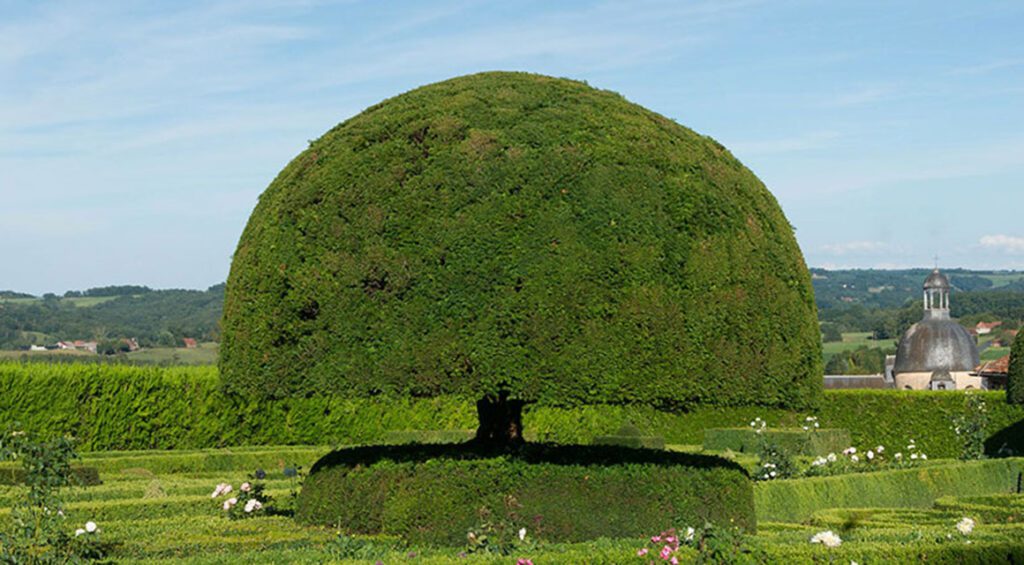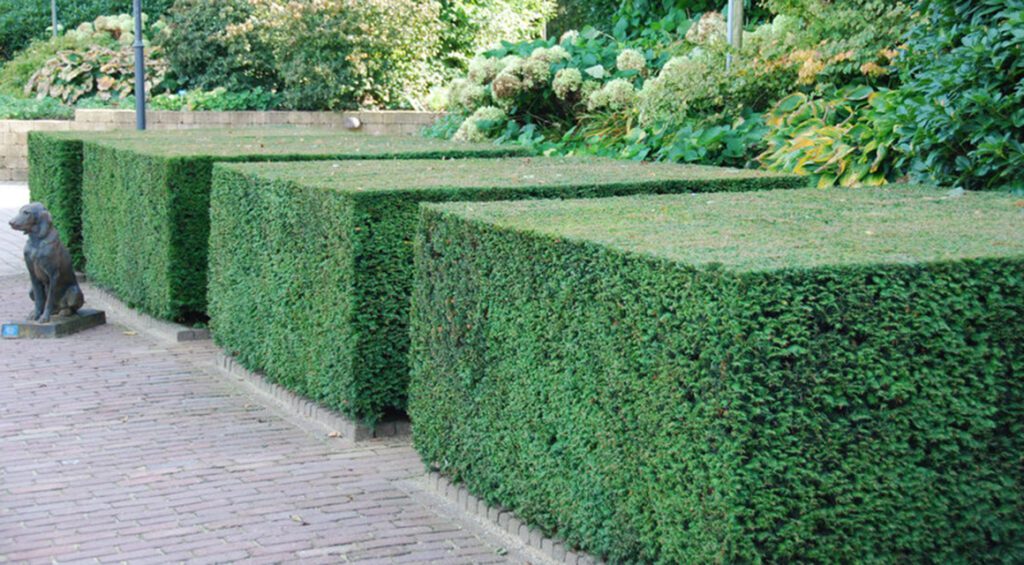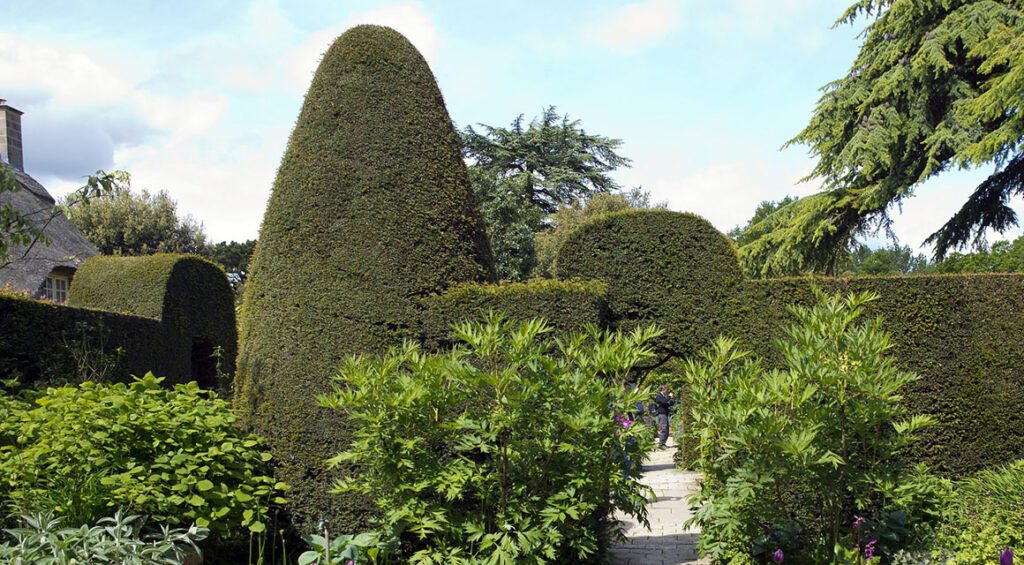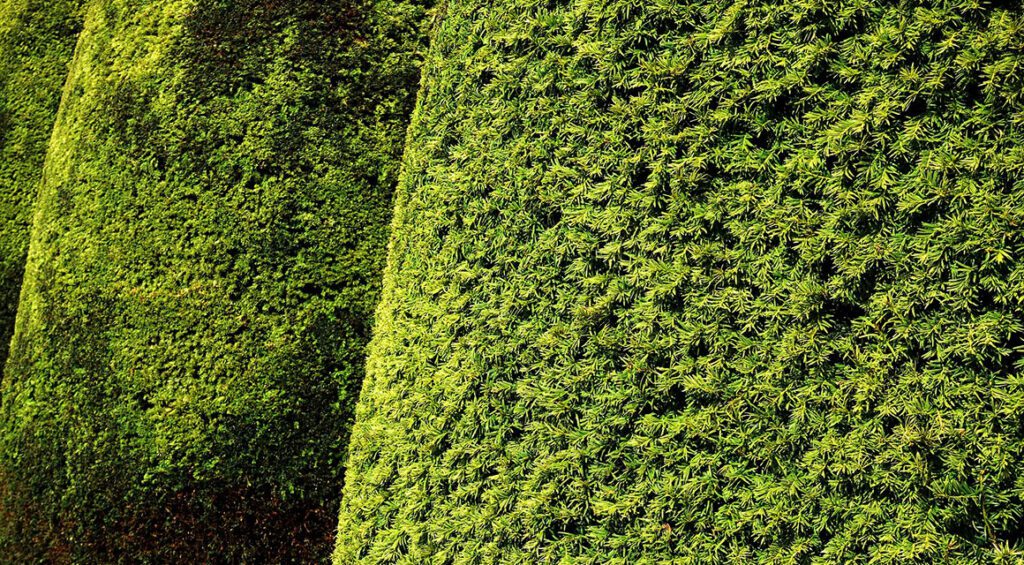If you prefer a conifer hedge with a formal look, then there is really no better hedge plant than yew. But did you know that there are different varieties of yew? Not every yew variety is equally suitable for forming a hedge. For example, some varieties do better as individual plants.

Contents
What are the varieties of yew hedge?
There are two varieties of yew that are best planted in the garden in relation to our climate. First of all, there is the common yew, also known as Taxus baccata. This yew is also found in our country as a wild plant and this already shows that it is comfortable in our climate. The common yew is especially suitable for forming a formal hedge, because it grows slowly and has a particularly elegant appearance with its dark green needles. Also, the common yew is an evergreen hedge plant, so your hedge will never look bare, don’t worry about that.
The Taxus media has many characteristics that a Taxus baccata also has. However, the Taxus media does not grow wild because it is a cultivated form. The Taxus media is a cross between the Taxus baccata and the Taxus cuspidata, which comes from Japan. The growth of this hedge plant is even more compact and slower than the Taxus baccata. In addition, the Taxus media is available in two different varieties: the female Taxus media ‘Hicksii’ and the male Taxus media ‘Hillii’. The Taxus ‘Hillii’ can pollinate the Taxus ‘Hicksii’, which then produces red berries in the fall.

The best yews for a low, formal yew hedge.
For many garden owners, yews are sturdy hedge plants that mostly form low hedges and get straight as a die and formal pruning. Yew is really ideal in this case. Its slow growth, growing only between 15 and 20 inches per year, means it will hold its shape for a long time. So a yew hedge won’t go wild in the garden very quickly. Actually, it makes little difference which yew variety you take: the Taxus baccata is just as suitable as the Taxus media. With the Taxus media, you should rather take the Taxus ‘Hillii’, because it doesn’t get berries and therefore will form a tight, green ‘wall’ at any time.
Of course, you can also choose to plant around a low berry hedge. The hedge will look a bit more informal, but in winter the berries will add a lot of color to your garden. For every ten or so hedge plants of the Taxus ‘Hicksii’ variety, you should plant one hedge plant of the Taxus ‘Hillii’ variety. This will allow pollination to take place and the first berries will then appear in September, sometimes even by the end of August. Such a yew hedge is then also perfect for the front garden, because there the hedge should also not be too high. In addition, enough sunlight will then also come into your house at any time.

The Best Yew Varieties for a Tall Privacy Hedge
Although yews are rarely among the first plants garden owners consider for a tall privacy hedge, a yew hedge can still grow tall enough to protect your garden from prying eyes. You’ll need patience to do this, though, because with a maximum growth rate of 20 inches per year, it can take as long as ten years before the yew hedge reaches the desired height. If you want to speed up this process, then you should buy a ready-made hedge of yew. We have specimens on offer that are between 1.80 meters and 2.00 meters high, which immediately provide a lot of privacy protection after planting.
For a privacy hedge, the Taxus baccata is especially suitable. Taxus media is capable of growing tall enough, but if it gets taller than 1.80 meters, the branches will quickly bend outward if, for example, snow is left on the branches. This can also quickly make this plant look unkempt. With the common yew, this risk does not exist. After a few years, the common yew hedge will be compact enough to ward off prying eyes. Also for animals it is then difficult to get through such a hedge, because the yew is extremely branched.

What should I look for when buying a yew hedge?
Taxus is the perfect hedge plant in many ways. Whether you are an experienced amateur gardener or not, the yew will easily grow into a wonderful hedge. Still, there are things you should look for when buying a yew hedge. First, you should pay attention to the garden soil. A yew can grow in almost any well-drained soil, but garden soils that are too wet are bad for the roots, and this is true for other conifers as well. So, a yew hedge is not suitable for clay soils. Also, almost all parts of a yew are poisonous, so you should be careful if you have small children or pets.
Otherwise, it can be said that the Taxus baccata and Taxus media are beautiful, low-maintenance hedge plants. Pruning a yew tree only needs to be done twice a year, as it will then look quite outstanding in all seasons. Do you need assistance with your selection or have any questions? Then contact our customer service, which will be happy to help you at any time.

